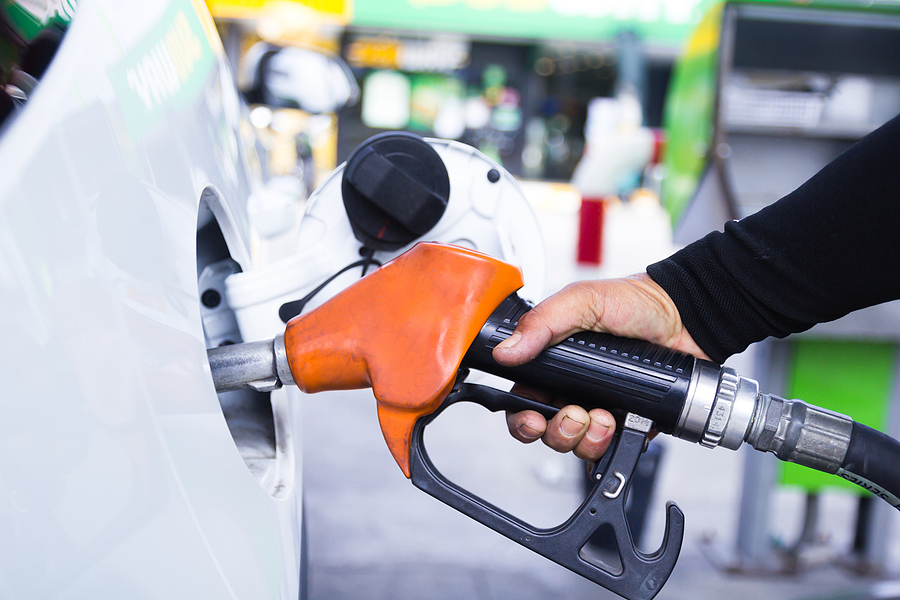Standing at the gas pump, you’ve probably wondered whether that extra dollar per gallon for premium gasoline is worth it. With gas prices fluctuating regularly, this decision affects your wallet directly. Yet many drivers remain confused about when premium grade fuel actually benefits their vehicle—and when it’s simply an expensive placebo.
The truth about premium gasoline isn’t as straightforward as marketing campaigns suggest. While some vehicles genuinely benefit from higher-octane fuel, others see no improvement whatsoever. Understanding these differences can save you money while ensuring your engine gets the fuel it truly needs.
This guide examines the real benefits of premium gasoline, identifies which vehicles actually require it, and debunks common misconceptions that lead drivers to make costly fueling decisions.

What Makes Premium Gasoline Different?
Premium gasoline differs from regular unleaded gasoline primarily in its octane rating. Regular gasoline typically has an octane rating of 87, while premium gasoline ranges from 91 to 94 octane, depending on your location.
Octane rating measures a fuel’s resistance to engine knocking—the unwanted combustion that occurs when fuel ignites prematurely in your engine’s cylinders. Higher octane fuels resist this premature ignition better than lower octane alternatives.
Beyond octane levels, premium gasoline often contains enhanced additive packages. These additives include detergents designed to clean fuel injectors, intake valves, and combustion chambers. While regular gasoline contains basic detergent additives required by law, premium formulations typically exceed these minimum standards.
The Real Benefits of Premium Gasoline
Prevents Engine Knocking and Damage
Engine knocking sounds like a metallic tapping or pinging noise from your engine. This occurs when fuel ignites before the spark plug fires, creating pressure waves that collide with the piston moving upward. Over time, severe knocking can damage pistons, connecting rods, and other critical engine components.
Premium gasoline’s higher octane rating prevents this premature ignition, particularly in high-compression engines. Vehicles with compression ratios above 10:1 often require premium fuel to operate without knocking, especially under load or acceleration.
Enhances Performance in Specific Vehicles
High-performance engines are designed to extract maximum power from premium gasoline. Sports cars like the Porsche 911 and BMW M Series feature sophisticated engine management systems that adjust timing and fuel delivery based on the octane rating detected.
When these engines receive premium fuel, they can advance ignition timing for optimal power output. Using regular gasoline in these vehicles often triggers the engine management system to retard timing, reducing power and responsiveness to protect the engine from knock.
Maintains Engine Cleanliness
Premium gasoline’s enhanced detergent additives help prevent deposit buildup on fuel injectors and intake valves. Clean fuel injectors spray fuel more precisely, maintaining proper air-fuel ratios and combustion efficiency.
German cars, including BMW and Mercedes-Benz models, often specify premium gasoline partly for these cleaning benefits. Their precise fuel injection systems perform better with the consistent fuel delivery that clean injectors provide.
Supports Turbocharged Engine Operation
Turbocharged vehicles like the Subaru WRX and Ford EcoBoost models compress the air-fuel mixture before combustion, increasing the likelihood of engine knock. The forced induction process raises cylinder temperatures and pressures, making premium gasoline’s knock resistance particularly valuable.
Many turbocharged engines can run on regular gasoline but operate more efficiently and produce more power with premium fuel. The engine computer adjusts boost pressure and timing based on detected knock, so premium gasoline allows these systems to operate closer to their design limits.
Contact Us for German Car Maintenance & Repair ✨
Which Vehicles Benefit Most?
Luxury Vehicles and Sports Cars
Luxury sedans such as the Mercedes-Benz S-Class and Audi A8 typically require or recommend premium gasoline. These vehicles feature high-compression engines engineered for smooth, refined operation that premium fuel supports.
Sports cars benefit most dramatically from premium gasoline. Their engines are tuned for performance, with compression ratios and ignition timing optimized for high-octane fuel. Using regular gasoline in these vehicles often results in noticeably reduced acceleration and responsiveness.
High-Compression Engines
Any vehicle with a compression ratio above 10:1 likely benefits from premium gasoline, regardless of price point. Check your owner’s manual for compression ratio specifications—this information determines your engine’s octane requirements more than the vehicle’s market positioning.
Older Vehicles with Carbon Deposits
Some older vehicles develop carbon deposits that effectively raise compression ratios. These deposits create hot spots that can trigger pre-ignition, making premium gasoline beneficial even in engines originally designed for regular fuel.
Debunking Common Premium Gasoline Myths
❌ Myth: Premium Gasoline Improves Fuel Economy for All Vehicles
Most vehicles designed for regular gasoline show no fuel economy improvement with premium fuel. The Environmental Protection Agency’s testing consistently demonstrates that using higher-octane fuel in engines designed for regular gasoline provides no measurable efficiency gains.
Only vehicles specifically designed for premium gasoline—and suffering reduced efficiency when using regular fuel—benefit from premium gasoline’s fuel economy potential.
❌ Myth: Premium Gasoline Fixes Existing Engine Problems
Premium gasoline cannot repair mechanical issues like worn piston rings, damaged valves, or faulty sensors. While its detergent additives may gradually clean minor deposits, expecting premium fuel to solve performance problems leads to disappointment and unnecessary expense.
Existing engine problems require proper diagnosis and repair, not premium fuel treatment.
❌ Myth: All Cars Run Better on Premium Gasoline
Engines designed for regular gasoline cannot advance timing or adjust compression ratios to benefit from premium fuel’s higher octane rating. These engines operate identically regardless of octane level, making premium gasoline an expensive placebo.
Your vehicle’s computer system only adjusts parameters when it detects knock, which shouldn’t occur in properly functioning engines using their specified fuel grade.
Premium vs. Unleaded: Weighing the Costs and Benefits
Premium gasoline typically costs 20-50 cents more per gallon than regular unleaded gasoline. For a vehicle with a 15-gallon tank, this translates to $3-7.50 additional cost per fill-up.
Calculate your annual premium fuel cost by multiplying this difference by your expected number of fill-ups. Many drivers find that vehicles not requiring premium gasoline show no benefits justifying this ongoing expense.
However, vehicles specifically designed for premium gasoline often experience reduced power, increased emissions, and potential long-term engine damage when consistently using regular fuel. In these cases, the premium fuel cost represents necessary maintenance rather than optional enhancement.
Making the Right Choice for Your Vehicle
Check your owner’s manual for fuel requirements—not recommendations. Vehicles requiring premium gasoline will specify this clearly, often noting potential warranty implications of using lower-octane fuel.
If your manual recommends but doesn’t require premium gasoline, you can likely use regular fuel without damage. Monitor your vehicle’s performance and listen for knocking sounds when using regular gasoline in these vehicles.
Consider your driving patterns when evaluating premium gasoline benefits. Aggressive acceleration, towing, or mountain driving increase knock likelihood, making premium fuel more valuable even in vehicles that don’t strictly require it.
In Summary
Understanding your vehicle’s fuel requirements ensures optimal performance while avoiding unnecessary expenses. Premium gasoline provides genuine benefits for specific engines but offers no advantages for vehicles designed to run on regular unleaded gasoline.
Rather than guessing about your engine’s needs, take proactive steps to maintain its health and efficiency. Professional fuel system cleaning removes deposits that can affect performance regardless of fuel octane rating.
Schedule a fuel system cleaning today to ensure your engine operates at peak efficiency, whether you use premium or regular gasoline. Our licensed German automotive mechanics will get you back on the road quickly and safely.
Related Post: How to Calculate Your Car’s Gas Mileage


